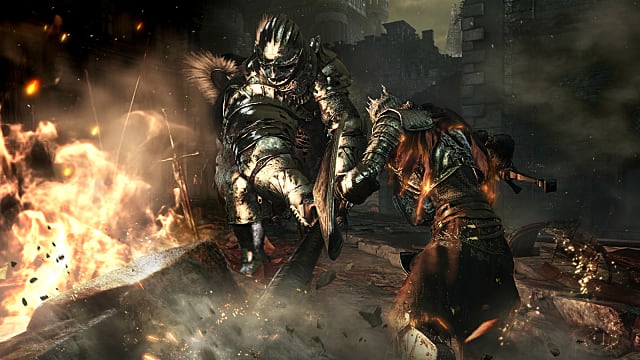Emerging into the great hall, you spy the silhouette of a beast that stands at least four times your size. Dramatic, boisterous, energetic music roars to life within your speakers. Hands tremble, palms sweat, heart pounds — you adjust your grip on the controller. Seconds become minutes; minutes become hours.
If you’ve experienced anything like this, you know full well how intimately music plays with emotions. In many players, it elicits feelings of fear or pressure, especially if stakes are high. Video game music manipulates your performance from the outset and often makes competing harder than it needs to be — but it isn’t always a hindrance.
How does music affect gameplay?
There are plenty of studies floating around the Internet that aim to divine music’s involvement in how deftly you play and perform. Many of them, however, have unearthed conflicting data: video game music indisputably serves to retain your focus, but its effects on gameplay widely varies from person to person.
In order to understand this discrepancy, one must realize how intimately music plays with our emotions and state of mind.
There’s a reason music is a siren’s weapon
Music comes in many flavors: a warm cup of tea, a tall cup of coffee, a quad-shot of espresso, etc. Like any of these energized drinks, music bends, twists, stimulates, or even obscures your state of mind. It coyly toys with mood; it whimsically twists perception. Cleverly executed video game soundtracks take strategic advantage of this to set the tempo of gameplay and influence your reactions.
(Pictured: Transistor — Supergiant Games)
Recent studies have unsurprisingly uncovered the incredible levels of influence video game music and sound have on focus and immersion. It increases heart rate; it increases respiration rate. At its best — and when listening through 2.1 stereo headphones, 5.1 surround sound, or anything beyond — in-game audio lifts you from your mortal form and plants you squarely within the digitized environment.
However, immersion does not have a direct effect on gameplay, it only serves to amplify emotion — which is already held in sway by the music playing. You should, instead, ask yourselves:
How does mood affect gameplay?
Music with a heavy, accentuated, recognizable beat breathes adrenaline into your system, which can induce a fight-or-flight response.
During gameplay, this often translates to one of two responses: clever, aggressive, creative tactics or recoiled, defensive, reactive strategies. If you can teach yourself to take advantage of the game soundtrack’s emotional sway, then you will play at your best.
However, if the native music drags your mood down, it will cause a dip in performance and taint your gameplay. In these situations, it is often best to supply your own tunes. (It is worth noting here that some people play better with the music off.)
In the end, everybody is different.
Everyone uniquely interprets music
A song will influence everybody in different ways. Music that instills fear in the hearts of some people will strengthen the resolve of others. Everything hinges on your perspective of the composition.
(Pictured: The Elder Scrolls V: Skyrim — Bethesda Game Studios)
In video games, you get a special opportunity to create your own stories; the soundtrack is made to set the scene. Divergent player experiences are therefore inevitable, thanks to music’s uncanny sway over your emotional state.
Does music sabotage your gameplay?
It depends on the person.
For most people, the in-game music serves to deeply immerse them in the experience and improve their gameplay. Some people do best when listening to their own music; some people do best when listening to no music.
Be aware of how in-game music affects you and listen to what suits you.
(Header Image: Dark Souls 3 — FromSoftware)


